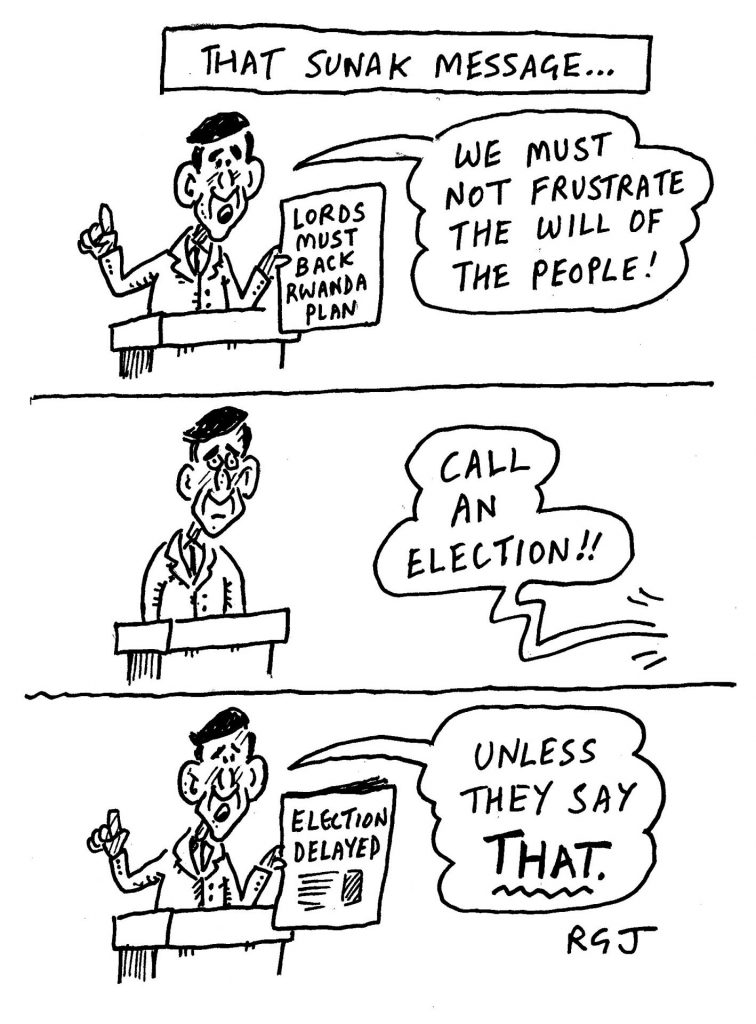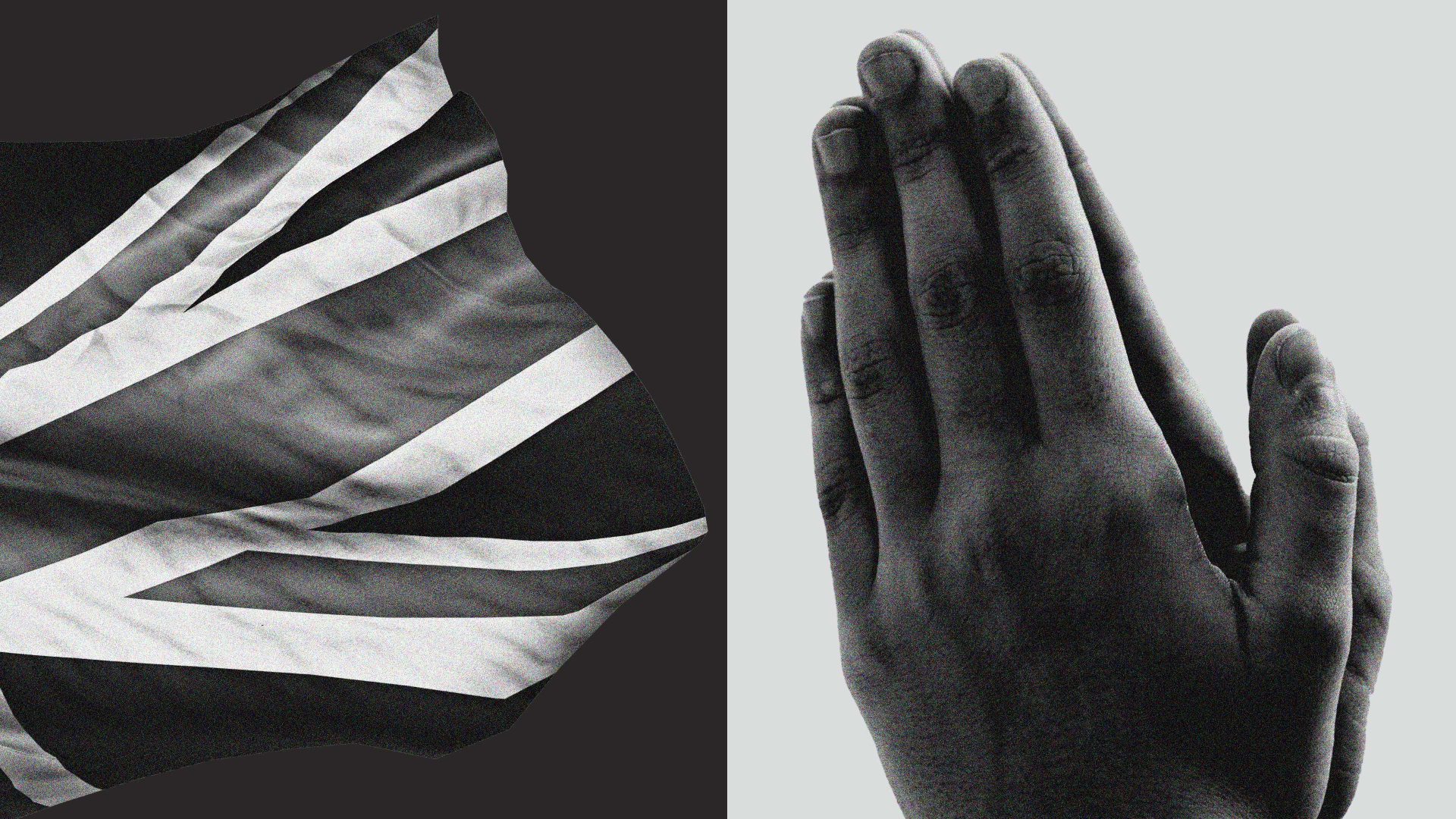The advertising agency Leo Burnett asked me to join a panel to discuss the findings of some interesting research they had done based on “listening to the listeners”. They selected people from all over the country whose work entails them listening to others – hairdressers, taxi drivers, pub landlords, cafe and restaurant staff, recruiters, personal trainers – and got them to report back what customers were saying about their lives.
None of you will be shocked to know that a lot of people are finding it really hard to get by right now. Nor was it earth-shattering to learn that most people think that politics in general, and the government in particular, are not up to much. However – and this may surprise some of you – when people were asked to describe the main sentiment of the people they’re listening to, “hopeful” came out well on top, ahead of anxious, angry, overwhelmed and all sorts of other negative emotions and attitudes.
As to where the hope stems from, it comes despite government, despite media, and is mainly rooted in family and locality, rather than any deep-seated optimism about the future of the country as a whole.
Given that Leo Burnett is an ad agency, they were doing this work so as to advise brands about how better to project themselves to the public. “Don’t care – help!” was their top advice. In other words, don’t just tell us you hear our pain, or understand our struggles, but do something about them. Don’t patronise us, give us a bit of support instead. And that is not just about prices. It is about brands being visible in the battle to meet the big challenges facing the country.
There are lessons in here for politics too. For the Tories, it is to stop telling everyone how good the government is, because that simply provokes cries of “you don’t get it” and “you don’t care”. Sunak’s cheery CBeebies presenter communications style, as he comes on endlessly to chirp how well everything is going in the economy, schools, hospitals and boat-stopping, really isn’t helping. He exudes not so much hope and positivity as delusion and an out-of-touchness exemplified by his preference for helicopters over trains (the private jet fetish has really broken through), and his wife’s vast wealth.
For Labour, after seeing the presentation, I found myself on the panel delivering the kind of messaging that this research might suggest for Keir Starmer. “Things are tough. The country is in a mess, and yes, we need a change of government. But it will take much more than a change of government to fix Britain. We can’t do it alone. We need you, your energy, your commitment, above all your knowledge and your hope that things can be so much better than this.
“For all of us, there are always obstacles to overcome, setbacks to endure, resilience to call upon. But we also know in our own families and communities that the more we stick together, work hard for each other, the more our hopes are fulfilled.
“If we could bottle the hope and pride we all have in our own lives, for our family, our friends and communities, and bring that mood to the benefit of the whole country, Team Britain, then there is nothing we set our minds to that we cannot do. My hope for Britain is that we rediscover as a nation that sense of optimism that makes us face the world with confidence, and get stuff done.”
In every election since 2010, fear has beaten hope. With the Tories now so discredited that people are beginning to wonder if they are fit to be the official opposition, let alone the actual government, it is time for hope to fight back.

One of my fellow panellists was a psychologist, Dr Julie Smith, and I confess she had not crossed my radar before. It was when she casually dropped into the discussion that her debut book had sold more than a million copies in English, and been translated into 43 languages, that I began to realise I had been missing out on something. A million! It turns out Why Has Nobody Told Me That Before? was the bestselling book of 2022, and Julie’s short videos on mental health and wellbeing advice clock up multimillion views across her social platforms.
What I love about her story is that the success was almost accidental. After 10 years as a clinical psychologist she began posting the videos, many of which went viral, all of which led to the book deal, and now she is working on the next one.
I have several bestsellers to my name, but none that get anywhere near to a million. If you want to help me at least try to make up the gap, the paperback of But What Can I Do? is out now, and if you would like a signed/dedicated one look up Coles Books online and my friend Nigel will sort you out. It’s interesting that both Julie and I used as titles questions we are often asked by the public, but even though my response also got to No 1, it didn’t stay there long, whereas hers was there for months. (That I didn’t know until now proves that most authors – well me anyway – only look at the lists when they might be in them!)
The fact that Liz Truss became prime minister, albeit briefly, must surely be what is making the most unlikely people imagine that they could too. I mean, Robert Jenrick, seriously! Yet clearly he considers himself a contender for the Tory leadership if and when Rishi Sunak heads off to Silicon Valley. I wondered if I was missing something, and so texted a Tory minister to ask that very question: “Is there more to him than meets the eye?” Back came the reply: “There is no limit to the self-deluding ambitions within my trade.”
One of the joys of early morning cold water swimming in the recent freezing temperatures is that you really get down to the hard core, among whom there is excellent banter and camaraderie. We appreciate that we are all a bit strange, mainly in a good way, and we all get something really positive out of the experience of immersion in water so cold that it doesn’t just tighten the scrotum, if I may borrow from James Joyce’s description in Ulysses of the “scrotum-tightening” Irish Sea; it makes you worry you no longer have one.
We also share stories of our daily lives in between swims, and story of the week definitely came from intensive care consultant Jim Down. He has been looking after a patient who has been unable to speak, for two months. When finally he had recovered sufficiently to regain the power of speech, Jim asked him: “Is there anything we can do to make things better for you?”
“Have we still got the same fucking government?” came the reply, followed by the suggestion that their departure from office would do more than anything Jim could offer.
I’m always baffled by the media cliche that the prime minister is “addressing the nation” when he holds a press conference in Downing Street. Is he not “addressing the nation” when he appears in the nation’s parliament, or doing one of his daily pooled CBeebies clips? When he addressed the nation last week, I was waiting for a train at Euston. In the lounge, a TV was playing his press conference live. Nobody, literally nobody, was watching or listening. Far from addressing the nation, he looked like a man shouting in an empty stadium.




